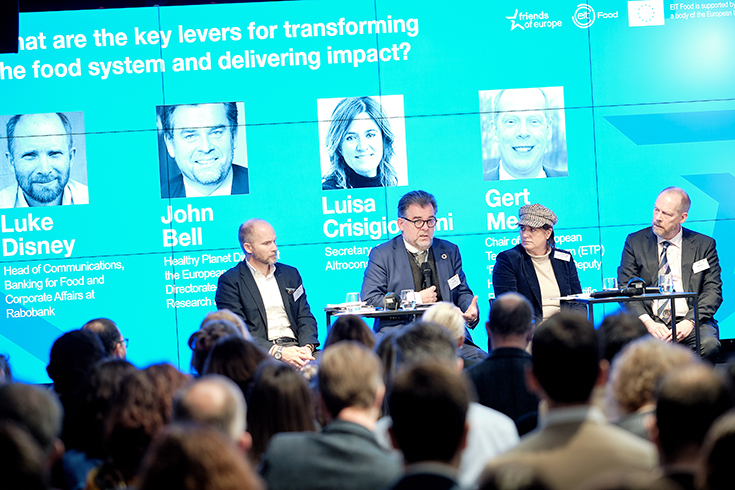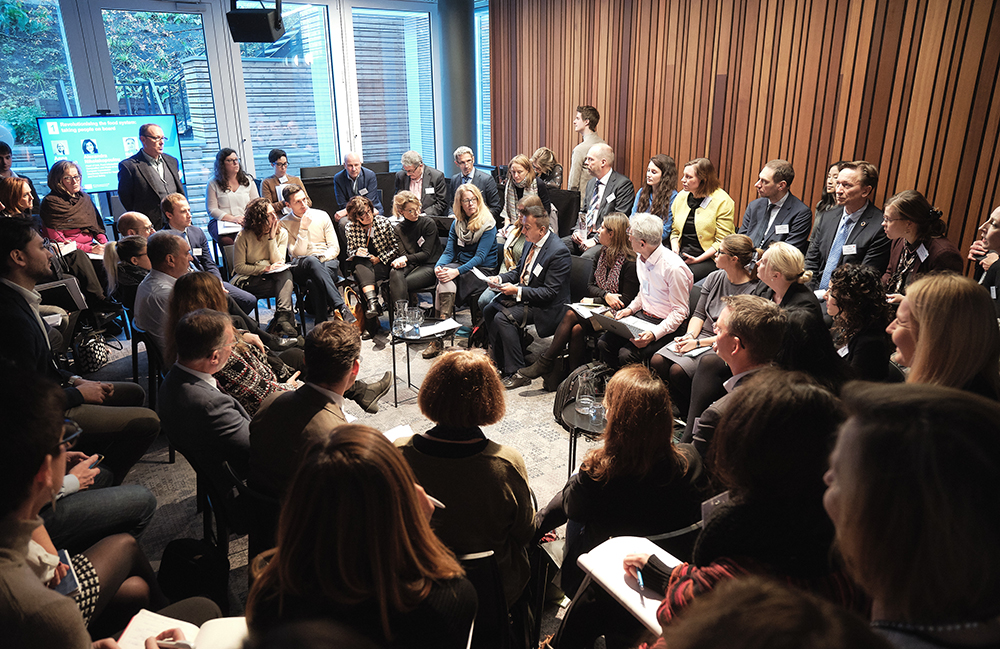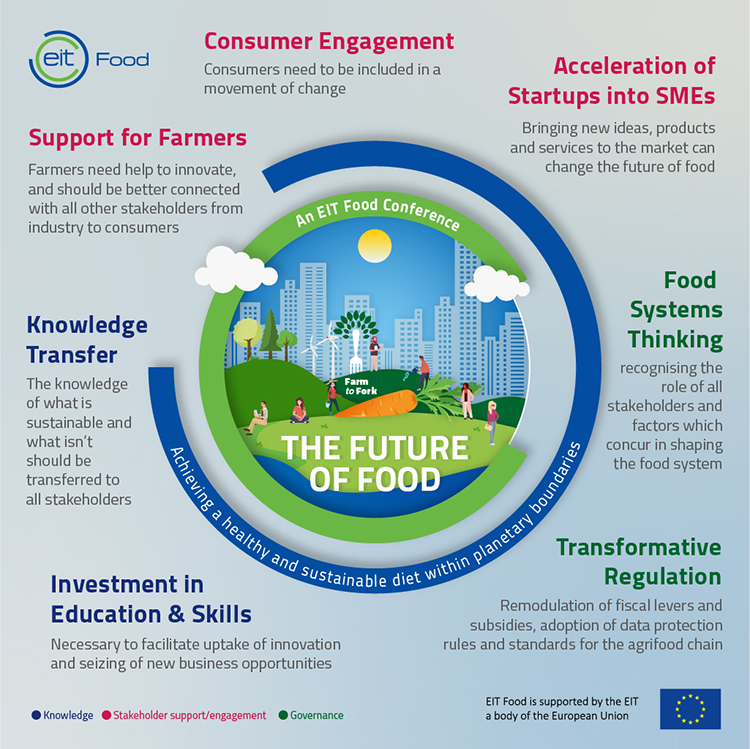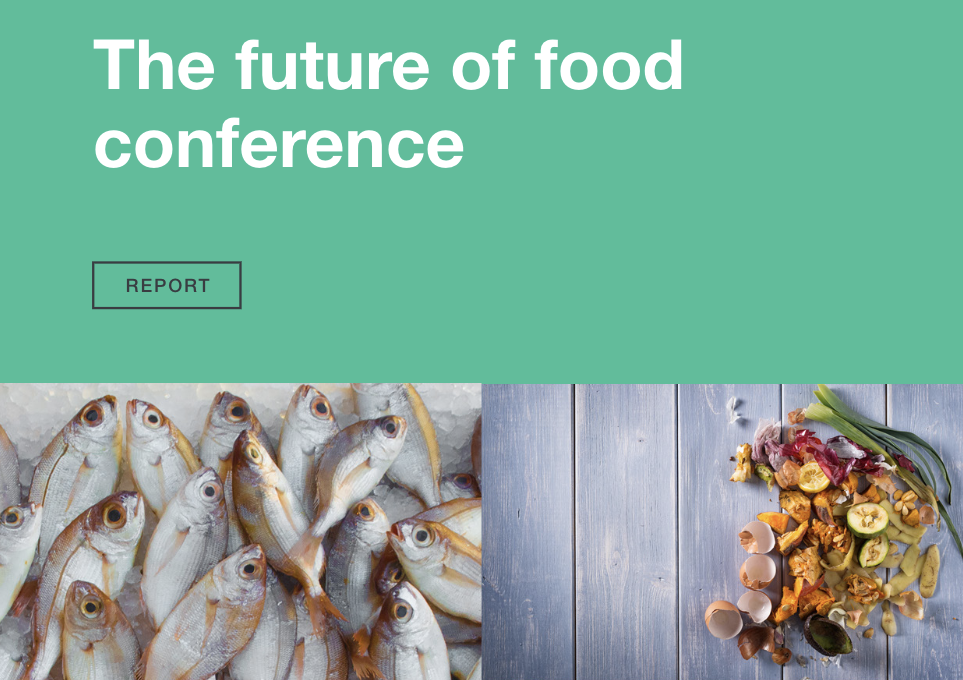How can we improve the future of food together?
Future of Food 2019: Conference Report

How do we transform Europe’s food system to improve the future of food? This was the key question discussed at EIT Food’s first EU conference on “The Future of Food”, organised in partnership with Friends of Europe on 20 November 2019.
The event offered an opportunity to discuss the future priorities of the EU’s research and innovation programme and food policy agenda, engaging around 170 EU and national officials, industry representatives, academic experts, farmer and consumer organisations in a series of breakout sessions and roundtables.

How do we transform a food system in crisis?
Starting with climate change, the list of challenges our food system faces today is staggering. With the outbreak of Covid-19 in February 2020, the pandemic has exacerbated some of these challenges even further, while bringing new ones to the fore. The questions addressed by the conference are still valid today, if not even more urgent.
The FAO report on ‘The State of Food Security and Nutrition in the World 2019’, presented at the conference, states that over 820 million people worldwide go hungry and this number is rising, in the South especially. With the pandemic this problem will become more acute.
The European Commission has published its Farm-to-Fork Strategy to tackle many of these challenges. The ideas and recommendations that emerged from the event can stimulate further debate on what can we do next. If the EU Green Deal will guide our future investment decisions, we need to place the future of food at the centre of this project.

Seven key recommendations to improve our food system
The conference report conveys seven important messages:
- Food systems thinking is vital: moving from value chain thinking to food systems thinking is a precondition to improve our food. This means recognising the many factors which concur in shaping it, including policy and regulation, social norms and consumer behaviour.
- We need to transfer knowledge between stakeholders more effectively: as the food system is fragmented and involves a multitude of different stakeholders (including consumers), it is important to ensure that the knowledge of what is sustainable and what isn’t, and the ability to convert it into concrete actions, is transferred to all stakeholders, so that everyone can contribute to improve the current system and benefit from it.
- Transferring knowledge requires a focus on Education & Skills: many event recommendations indicated the necessary conditions to make this knowledge transfer happen. Creating innovations and new technologies is not enough. Education and skills are equally important, at all levels.
- Regulation is an enabler of transformation: fiscal levers, subsidies, data protection rules and standards, to name but a few, are all important in this change process.
- Supporting farmers is a clear priority: Many recommendations focus on them. But they are not seen in isolation, fitting only in a “primary sector” box. They are part of the food system and should be better connected with all other stakeholders, from industry to consumers.
- Consumers must be a key part of the solution: conference participants stressed the importance of bringing consumers on board. Including them in a movement of change to improve our food is key to get them to change their own behaviour.
- SMEs have a big role to play: participants also recognised the role of SMEs in shaping the future of food. SMEs are the bedrock of the European food industry. Each SME is the result of a successful entrepreneurial project, bringing new ideas, products and services to the market. New startups, growing into SMEs, can change the future of food. We need to support them.
You can download the report of the Future of Food conference 2019 here.

The Future of Food conference 2020
EIT Food will host its second conference on The Future of Food on 1-2 December 2020, which will take place in a virtual format. This new edition will build on the learnings from the previous event, while exploring new aspects in the process of change to improve our food.
If you would like to propose a topic or a question to address at the next conference, or if you would like to propose a project or a speaker which could contribute useful insights to the event, please contact Giovanni Colombo.
Do you have a comment or an opinion you’d like to share with us on the future of food? Please leave a comment below.
More blog posts

From Pitch to Plate: How Football Is Addressing Food Waste

